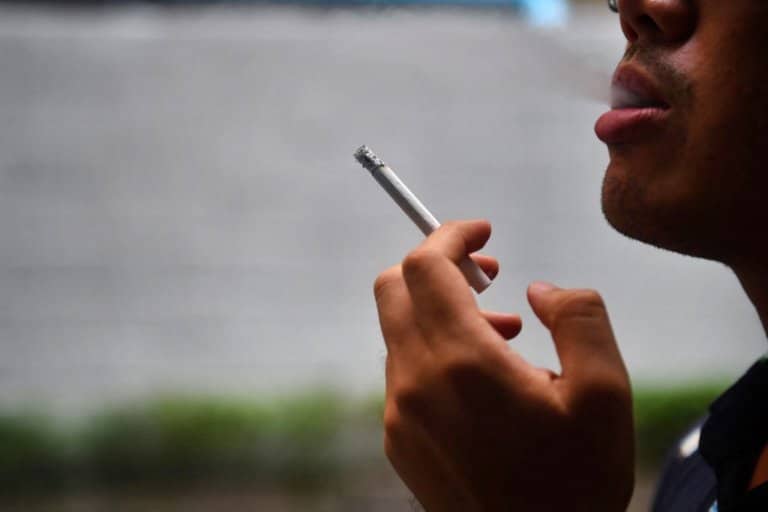
Smoking on campus — is it cool or not cool?
While we would love to puff as we please, when we please and wherever we please, it may not be okay to do so — especially when you’re an international student.
This is not just because smoking is one of the leading causes of diseases, disability and death, and that every year, almost seven million die of it.
Or because second-hand smoke is just as harmful and contributes to around 41,000 deaths annually.
It’s because every country has its own laws on smoking — and every university has its own policies around smoking on campus.
It’s important that international students follow these laws and rules. You’re free to smoke on some parts of campus — provided you’re doing it the right way.
The problem is it can be hard to figure out who, what, when, where and what is okay about smoking on campus.
If you feel just as lost about this, read on. We’ve got a handy guide about smoking rules in different countries and their universities
What’s okay and not okay about smoking on campus: A comparison of three countries

Every university has its own policies around smoking on campus. Source: Jay Directo/AFP
UK
In the UK, smoking has been prohibited in closed public places and workplaces since July 1, 2007, after the Health Act came into force in 2006.
This includes universities. They have a legal duty to ensure that smoking shall not be permitted in enclosed or substantially enclosed spaces to which the public has access.
Local authorities are responsible for enforcing this law. Environmental Health Officers can enter all “non-smoking” rooms to ensure that smoke-free laws are enforced according to law.
When in the UK, smoking in a smoke-free place can lead to a fixed penalty of 50 pounds or a maximum fine of 200 pounds if convicted by a court.
You can still smoke in private homes and areas (barring the common areas) — if you live off campus.
What if you live on campus? Does your student room count as public or private?
You’ll have to check with your uni about this — some unis consider your room public in its blanket ban.
“Smoking is not permitted inside any of the residences. This refers to all types of smoking including tobacco, shisha and cannabis,” says the University of Surrey website.
This doesn’t mean you can’t smoke at all. Exemptions to this ban include outdoor smoking in pubs, restaurants and cafes, as well as designated shelters.
A good guide is to find a pavement at least five metres away from any doorway or campus entrance.
Smoking on campus is not just about following laws, but caring about how it affects people around you too.
The University of Worcester has this notice on its website:
“Please remember the smell of tobacco smoke remains on your clothes so be considerate if you will be working or studying in close proximity to others.”

Smoking on campus is not just about following laws but caring about how it affects people around you too. Source: Joe Klamar/AFP
US
In the Land of the Free, it’s a little tricky to know where you can or cannot smoke.
While there is no federal smoking ban in workplaces and public places, there are state and local laws that ban smoking in “workplaces, and/or restaurants, and/or bars.”
As many as 82.1% of Americans are under such a ban. In California, for example, smoking is banned in all enclosed workplaces, including bars and restaurants.
You stand to be fined up to US$100 for your first violation and up to US$300 for your third violation.
But what about campuses?
In September 2012, the Tobacco-Free College Campus Initiative set forth to encourage colleges and unis to be smoke-free.
When this initiative was first carried out, around 774 colleges and universities followed suit and became smoke-free campuses.
Since then, the number of higher institutions implementing this policy has increased to around 2,611.

In Canada, smoking on campus is mostly restricted to Designated Smoking Areas Source: Geoff Robins/AFP
Canada
Implementing smoking restrictions in Canada is the responsibility of provincial and territorial governments.
Under federal law, smoking is prohibited in all federal government places.
Dalhousie University’s Halifax campus became the first institution in Canada to make its campus 100% smoke-free in 2003.
In 2017, under the Smoke-Free Ontario Act, citizens were not allowed to smoke or vape in any enclosed places. This includes colleges, universities and workplaces.
Those caught smoking or vaping in an area designated as smoke-free may be charged with a fine.
At the time when this law was imposed, only 30 higher institutions in Canada identified as 100% smoke-free.
Since then, the number has tripled, with over 95 colleges and universities implementing the smoke-free campus act.
First-time offenders may be subject to a fine of 1,000 Canadian dollars and if caught the second time around, the fine can go up to 5,000 Canadian dollars.










